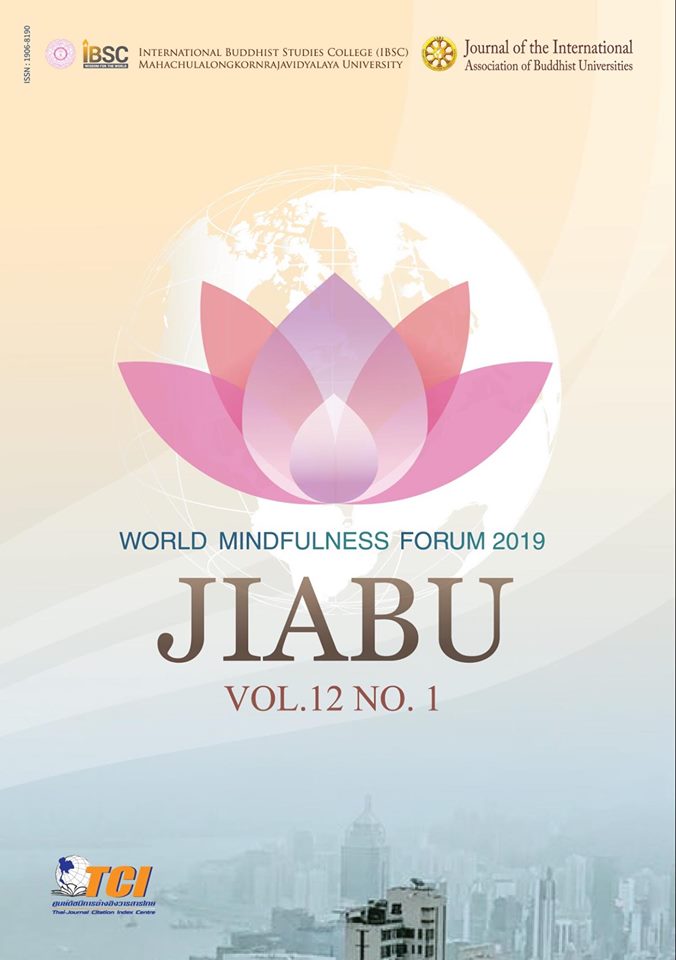The prime causes of the conflict and its resolutions with special reference to Mahānidānasutta
Main Article Content
Abstract
This research article aims to explore the prime causes of conflict and its resolution
with special reference to Mahānidānasutta and other relevant discourses. The methodology
of this research article is qualitative approach. Every human being faces with the problems
in the life time. Here the problem refers to the conflicts or suffering which were included
in part of life. The Mahānidānasutta came from dialogue between the Buddha and his
disciple Ananda, in conversation, Ven. Ananda said that depentorigination is too easy to
understand but the Buddha reply to him it was totally wrong, as dependent origination was
not easy to understand because depend origination is a key principle of Buddhist teachings
which states that all the Buddha teachings arise in dependence upon other “if this exists,
that exists; if this ceases to exist, that also ceases to exist”. The Buddha used the principle
of Dependent Origination to understand human suffering and how to bring that suffering
to an end. According to the principle, if suffering depends on something, and that thing
is eliminated, the suffering will come to an end. The Buddha understood the causes and
conditions of suffering and how to remove them. It is with this insight that the Buddha
could then teach a path to liberation. The study shows that five categories of areas mainly
have occurred the conflicts as root causes and finds resolutions as much as possible.
Article Details
Views and opinions expressed in the articles published by The Journal of the International Association of Buddhist Universities (JIABU), are of responsibility by such authors but not the editors and do not necessarily reflect those of the editors.
References
Dhammananda K. S. (2017). What Buddhist Believe. Taiwan.
Nanamoli, Bhikkhu (2010). The Path of Purification (Visuddhimagga). Kandy: BPS.
Rahula, W. (2016). What the Buddha Thought. Colombo: Buddhist Culturel Center.
U Aye Maung (2016). Buddha and Buddhism. Yangon: Yan Aung Publishing House.
Warder, A.K (2017). Indian Buddhism. Delhi: Narender Prakash.


